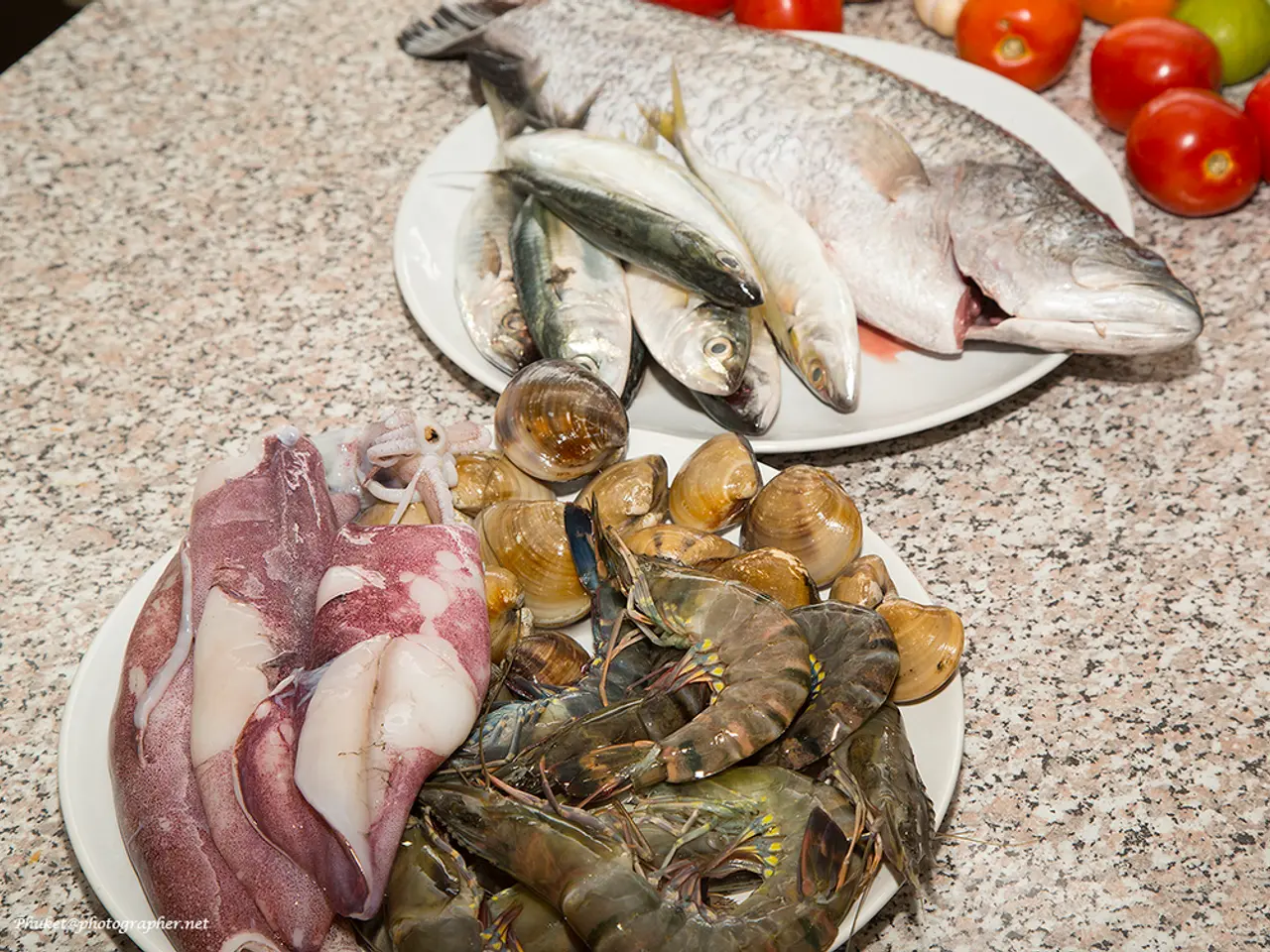Increasing High-Density Lipoprotein (HDL), or 'good' cholesterol, and understanding its beneficial role in the body
In the ongoing quest for maintaining a healthy heart, understanding cholesterol and its impact on our bodies is crucial. Atherosclerosis, a condition characterized by the build-up of fatty deposits in the arteries, is a significant risk factor for serious complications such as high blood pressure and heart attack or stroke.
To maintain a balanced cholesterol level, it's essential to adopt a diet rich in foods that promote healthy cholesterol levels. These include those that are lower in saturated fats, higher in unsaturated fats, and higher in heart-healthy fibers. Foods such as oatmeal, psyllium husk, beans like lentils, black beans, and peas, whole grains, artichokes, apples, avocado, and foods high in unsaturated fats such as avocado, olives, nuts and seeds, vegetable oils like olive oil and sunflower oil, and oily fish such as salmon, mackerel, sardines, and herring, are excellent choices.
The liver produces all the cholesterol the body needs, but consuming foods that increase bad cholesterol, such as those high in saturated fat, trans fat, sodium, and added sugars, should be avoided. Instead, opt for low-fat or lean products, such as lean meats, poultry with no skin, fat-free or low-fat dairy products, whole grains, fruits, and vegetables.
HDL cholesterol, often referred to as 'good' cholesterol, plays a vital role in maintaining a healthy heart. It helps remove other forms of cholesterol by absorbing it and carrying it to the liver. Foods that increase good cholesterol levels include fatty fish, extra virgin olive oil, nuts and seeds, avocados, purple fruits and vegetables, and yogurt.
Fatty fish provide omega-3 fatty acids known to boost HDL, while extra virgin olive oil can increase HDL by 6-7% when replacing other fats. Nuts and seeds offer healthy mono- and polyunsaturated fats that support HDL, and avocados are rich in monounsaturated fats that improve HDL function. Purple produce contains anthocyanins that may increase HDL by up to 13%, and yogurt may raise HDL due to probiotics and other nutrients.
To maximise benefits, these foods are typically recommended as part of a Mediterranean-style diet, which has been shown in large studies to raise HDL by 10-15% and improve cardiovascular health markers.
Regular aerobic exercise (about 120 minutes per week), quitting smoking, and moderate weight loss are effective strategies to boost HDL naturally. It's also important to avoid trans fats, excessive sugar, refined carbohydrates, and heavy alcohol consumption, as these lower HDL levels.
In summary, incorporating fatty fish, extra virgin olive oil, nuts, seeds, avocados, purple fruits and vegetables, and yogurt into your diet while maintaining an active lifestyle can help increase good HDL cholesterol, thereby lowering the risk of heart disease and its complications.
[1] Mediterranean diet and heart health [2] Effects of nuts on cholesterol levels [3] HDL cholesterol and heart disease risk [4] Trans fats and HDL levels [5] Yogurt and HDL cholesterol
- A diet rich in foods like fatty fish, extra virgin olive oil, nuts and seeds, avocados, purple fruits and vegetables, and yogurt, as part of a Mediterranean-style diet, can help increase HDL cholesterol, thereby lowering the risk of heart disease and its complications.
- Regular aerobic exercise, quitting smoking, and moderate weight loss are effective strategies to boost HDL cholesterol naturally.
- Consuming foods that increase bad cholesterol, such as those high in saturated fat, trans fat, sodium, and added sugars, should be avoided to maintain a balanced cholesterol level.
- The liver produces all the cholesterol the body needs, but excess consumption of unhealthy fats can lead to other heart diseases due to the establishment of conditions like atherosclerosis.
- The consumption of foods like oatmeal, psyllium husk, beans like lentils, black beans, and peas, whole grains, artichokes, apples, avocado, and foods high in unsaturated fats such as avocado, olives, nuts and seeds, vegetable oils like olive oil and sunflower oil, and oily fish such as salmon, mackerel, sardines, and herring are excellent choices for maintaining optimal heart health and healthy cholesterol levels.




